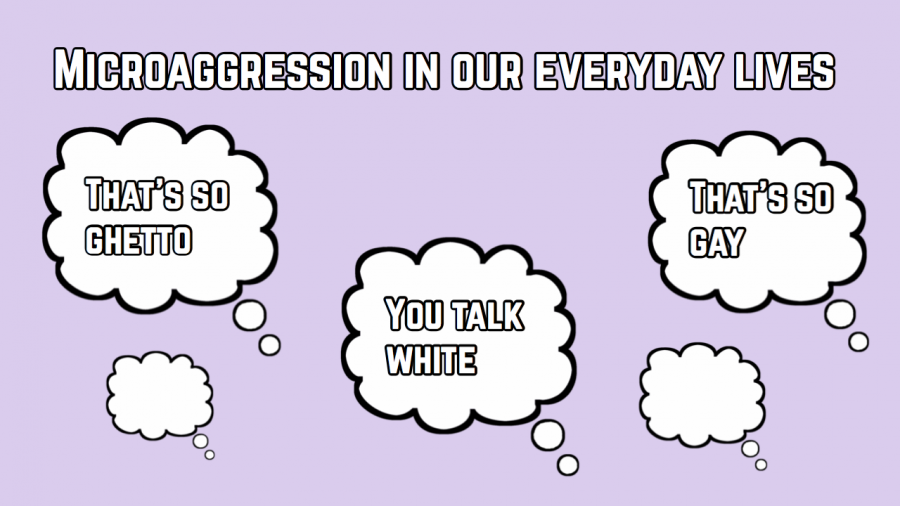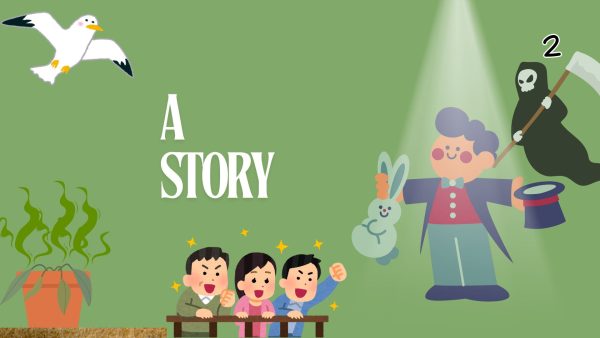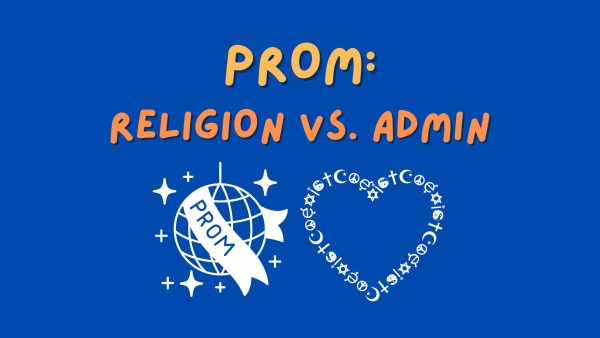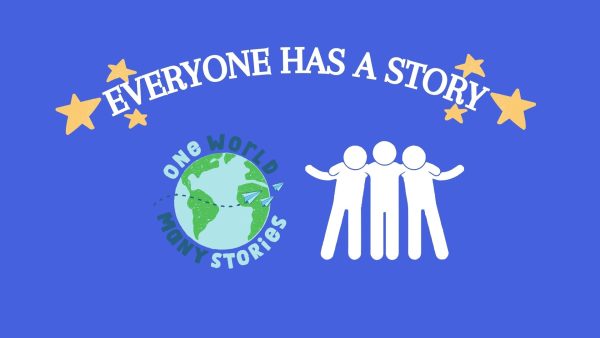Microaggressions are becoming more than ‘micro’
Microaggressions are becoming more common in society, and they affect too many people.
As Montgomery County Public School officials embark on a new initiative to combat discrimination, racial hate, and bias, I want to lend my voice to share my story and address what I believe is the root cause of this hate: the encouragement of microaggressions.
Microaggressions are defined as statements, actions, or gestures that can indirectly discriminate against members of a marginalized group, such as a racial or ethnic minority. As harmless as they might seem, microaggressions are designed to belittle one’s race, ethnicity, gender, and sexual orientation. They are not compliments.
All people of color have come into contact with microaggressions, in one way or another.
One day in science class, Patrick* said to me, “Grace, you act really white.” I was speechless. Knowing this statement was intended as a joke, I laughed it off, saying something along the lines of “Yeah, I get that a lot,” feeling proud that I had successfully been accepted as a friend.
*Disclaimer: Names have been changed to protect students’ privacy*
Having heard this comment repeatedly growing up, I didn’t want to believe that this could be a microaggression, because it always seemed to be under the guise of a compliment. This mindset of using a set of characteristics or actions to describe a race was prominent in my psyche that unbeknownst to me, I was being singled out, and pitted against my fellow brothers and sisters of color.
I have struggled with being biracial for the longest time, and this comment only provoked the search for my identity. Patrick questioned my intellect. He made me feel irrelevant. He seemed to believe that I was someone with a “white soul” trapped in a black body, attributing my mature character to that secret “white soul,” and entirely discrediting the way that I was raised and who I’ve worked to become. He seemed to look at me as if I were a black girl who didn’t know her place.
It happened when I was 12 years old. I didn’t know that certain actions had “color” or belonged to a particular race. I didn’t know that being mature or intelligent meant I had a “white soul.” Identifying people solely by the color of their skin was not at the forefront of my understanding of the world, because I was raised to see people according to their actions and character.
As a result, when I looked into the mirror, I didn’t see someone who was biracial. I saw an independent thinker and an intelligent woman who didn’t feel it necessary to limit herself to the color of her skin. Yet in the few times when I did acknowledge the color of my skin, I never saw it as a negative thing. Being biracial was and still is so special to me.
Growing up, I believed that by conducting myself in ways that were consistent with the strong moral values that were instilled in me at home, I could achieve the same privilege that white people and people who looked Caucasian were endowed with. However, I forgot the color of my skin.
Patrick may have intended it as a joke, but discrimination and racism are not subjects to be taken lightly, even if they’re being played off as a joke. My story is just one of many. For other students, microaggressions are a normal part of life, deeply rooted in the mentality of accepting offensive, off-handed jokes that cross the line of being humorous and enter into the realm of intentional or unintentional hate.
Maturity, civility, intelligence, and other positive traits do not equate to “white culture.” Similarly, wearing hoodies, sagging pants, curly hair, and listening to rap music does not “belong” to black people. From wearing blackface, to saying the n-word, and “n-word passes,” microaggressions—if not addressed and discouraged—are no longer “micro.” Sooner or later, they become “macro-aggressions,” translating into the hate and violence that is too often praised on social media and so easily seep into our schools.
Your donation will support the student journalists of Watkins Mill High School. Your contribution will allow us to purchase equipment and cover our annual website hosting costs.

Grace Edwards is a senior at Watkins Mill High School and Co-Editor-in-Chief for The Current. She is a straight-A student who enjoys playing her violin....

Amelia is a senior at Watkins Mill High School and an Associate Editor for The Current. She’s on Watkins Mill's varsity track and field team and has...













Grace Edwards • Feb 21, 2020 at 8:12 am
Hi! Absolutely. Feel free to share it, that’s fine. I’m so glad you enjoyed the column. Thank you so much for reading it and for your comment!
Kayla Beckert • Feb 19, 2020 at 6:34 pm
Your article is so true, and so important. Thank you for writing it.
May I share your article with my graduate class (in my Masters of Teaching program)? While what you are saying is always important, we also happen this week to be discussing Cultural Competency and teens, which means that my class will be especially receptive to your message about your experiences. It would be powerful for everyone in my class to hear your powerful perspective.
I also want to say that I am very sorry that you have to face these aggressions, micro and macro, throughout the course of daily living! Systemic racism is a toxic soup affecting each and every one of us, and we adults need to help fight it.
Might you consider a follow-up article—a message to teachers? What micro or macro aggressions have you faced from us or have you faced in our presence? What could and/or must we do better? Have we failed to intervene in the face of such aggressions? Have any of your teachers intervened helpfully? If so, what did they do? Have any of us intervened in ways that made things worse? If so, what happened and what should we teachers avoid doing? I imagine that you are busy beyond belief. If you chose to do this follow-up, and somehow found the time to do this, it would be a great service to us all, which you are, of course, under no obligation to do.
Thanks again for your article, and thanks for persevering in the face of undeserved b.s.
:^) Ms. Beckert